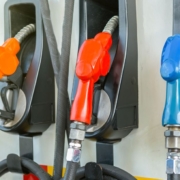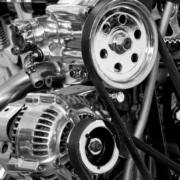HP Boost vs. Fuel Efficiency: Striking the Balance with Performance Chips
In the world of engines, the constant quest for performance often clashes with the desire for fuel efficiency. This is particularly true when it comes to performance chips, aftermarket modifications that promise increased power output but can potentially come at the cost of higher fuel consumption. So, is there a way to strike the balance between these two seemingly opposing forces?
Understanding Performance Chips
Performance chips, also known as engine control modules (ECMs) or power programmers, are essentially small computers that modify the engine’s settings. By adjusting parameters like fuel injection, ignition timing, and boost pressure (in turbocharged engines), they can unlock additional power and improve acceleration.
However, it’s crucial to understand that these chips do not create more power out of thin air. They simply allow the engine to utilize its existing potential more effectively. This often comes at the expense of increased fuel consumption.
The Fuel Efficiency Trade-off
The additional power unlocked by performance chips translates to the engine working harder. This in turn, translates into burning more fuel to generate the extra power. The extent of the fuel efficiency decline can vary depending on several factors. These factors include the specific chip, driving habits, and vehicle type.
Different chips offer varying power gains, and the more aggressive the tuning, the greater the potential fuel consumption penalty. Aggressive driving with frequent rapid acceleration and high speeds will also naturally lead to higher fuel consumption, regardless of whether a performance chip is installed. Finally, larger, heavier vehicles will generally see a more significant impact on fuel efficiency compared to smaller, lighter ones.
Striking the Balance: Tips and Considerations
While performance chips offer the allure of increased power, it’s crucial to weigh the potential benefits against the downsides before making a decision. To help you strike the right balance, consider these tips.
Choose a reputable brand with a proven track record and a chip specifically designed for your vehicle model. Not all chips are created equal, and opting for a reliable one can ensure compatibility and optimal performance gains. Additionally, researching the specific chip’s impact on fuel efficiency for your car model can help you make an informed decision.
 If fuel efficiency is a top priority, especially for daily commutes, a performance chip might not be the best choice. Explore alternative power upgrades, like air intake or exhaust modifications, which can sometimes offer slight performance gains without significantly impacting fuel efficiency. Consulting with a qualified mechanic can also be beneficial. They can help you understand the potential impact of a performance chip on your specific vehicle and recommend the best option for your needs and priorities.
If fuel efficiency is a top priority, especially for daily commutes, a performance chip might not be the best choice. Explore alternative power upgrades, like air intake or exhaust modifications, which can sometimes offer slight performance gains without significantly impacting fuel efficiency. Consulting with a qualified mechanic can also be beneficial. They can help you understand the potential impact of a performance chip on your specific vehicle and recommend the best option for your needs and priorities.
Ultimately, the decision to opt for a performance chip is a personal one. By understanding the trade-offs and making informed choices, you can ensure you get the most out of your vehicle without compromising on fuel efficiency. Remember, the key is striking the right balance between enjoying the thrill of increased performance and maintaining responsible fuel consumption habits.















Leave a Reply
Want to join the discussion?Feel free to contribute!